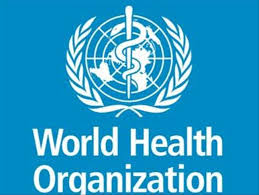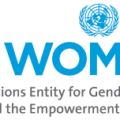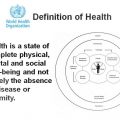According to the World Health Organization defines sexual health as a state of physical, emotional, mental and social well-being in relation to sexuality; it is not merely the absence of disease, dysfunction or infirmity. Sexual health requires a positive and respectful approach to sexuality and sexual relationships, as well as the possibility of having pleasurable and safe sexual experiences, free of coercion, discrimination and violence. For sexual health to be attained and maintained, the sexual rights of all persons must be respected, protected and fulfilled.” (WHO, 2006a)
Sexuality
Sexual health cannot be defined, understood or made operational without a broad consideration of sexuality, which underlies important behaviours and outcomes related to sexual health. The working definition of sexuality is: “…a central aspect of being human throughout life encompasses sex, gender identities and roles, sexual orientation, eroticism, pleasure, intimacy and reproduction. Sexuality is experienced and expressed in thoughts, fantasies, desires, beliefs, attitudes, values, behaviours, practices, roles and relationships. While sexuality can include all of these dimensions, not all of them are always experienced or expressed. Sexuality is influenced by the interaction of biological, psychological, social, economic, political, cultural, legal, historical, religious and spiritual factors.” (WHO, 2006a)
Sexual rights
There is a growing consensus that sexual health cannot be achieved and maintained without respect for, and protection of, certain human rights. The working definition of sexual rights given below is a contribution to the continuing dialogue on human rights related to sexual health. “The fulfilment of sexual health is tied to the extent to which human rights are respected, protected and fulfilled. Sexual rights embrace certain human rights that are already recognized in international and regional human rights documents and other consensus documents and in national laws.
Rights critical to the realization of sexual health include:
- the rights to equality and non-discrimination
- the right to be free from torture or to cruel, inhumane or degrading treatment or punishment
- the right to privacy
- the rights to the highest attainable standard of health (including sexual health) and social security
- the right to marry and to found a family and enter into marriage with the free and full consent of the intending spouses, and to equality in and at the dissolution of marriage
- the right to decide the number and spacing of one’s children
- the rights to information, as well as education
- the rights to freedom of opinion and expression, and
- the right to an effective remedy for violations of fundamental rights.
Sexual health is fundamental to the overall health and well-being of individuals, couples and families, and to the social and economic development of communities and countries. Sexual health, when viewed affirmatively, requires a positive and respectful approach to sexuality and sexual relationships, as well as the possibility of having pleasurable and safe sexual experiences, free of coercion, discrimination and violence. The ability of men and women to achieve sexual health and well-being depends on their:
- access to comprehensive, good-quality information about sex and sexuality;
- knowledge about the risks they may face and their vulnerability to adverse consequences of unprotected sexual activity;
- ability to access sexual health care;
- living in an environment that affirms and promotes sexual health.
Sexual health-related issues are wide-ranging, and encompass sexual orientation and gender identity, sexual expression, relationships, and pleasure. They also include negative consequences or conditions such as:
- infections with human immunodeficiency virus (HIV), sexually transmitted infections (STIs) and reproductive tract infections (RTIs) and their adverse outcomes (such as cancer and infertility);
- unintended pregnancy and abortion;
- sexual dysfunction;
- sexual violence; and
- harmful practices (such as female genital mutilation, FGM).





